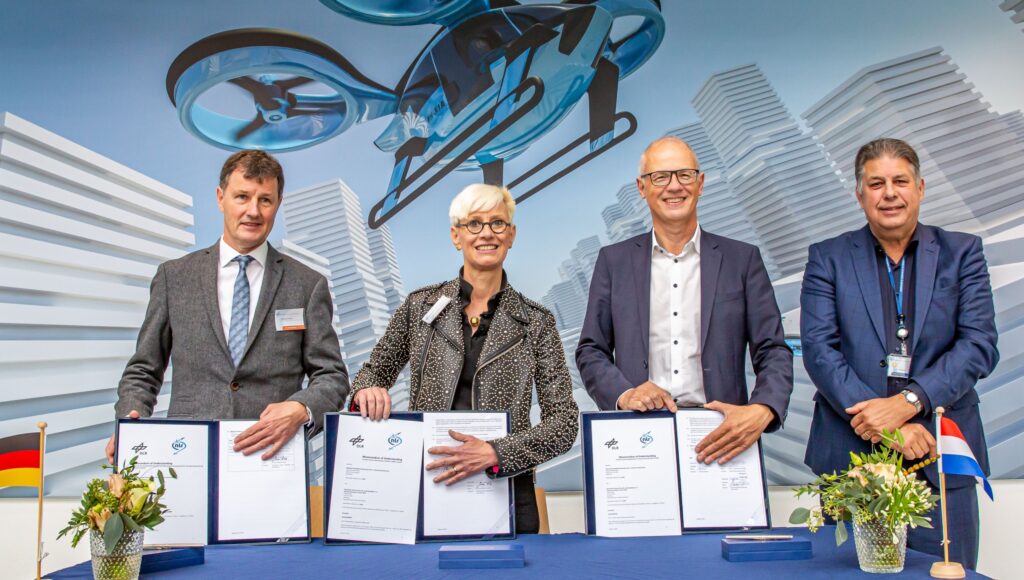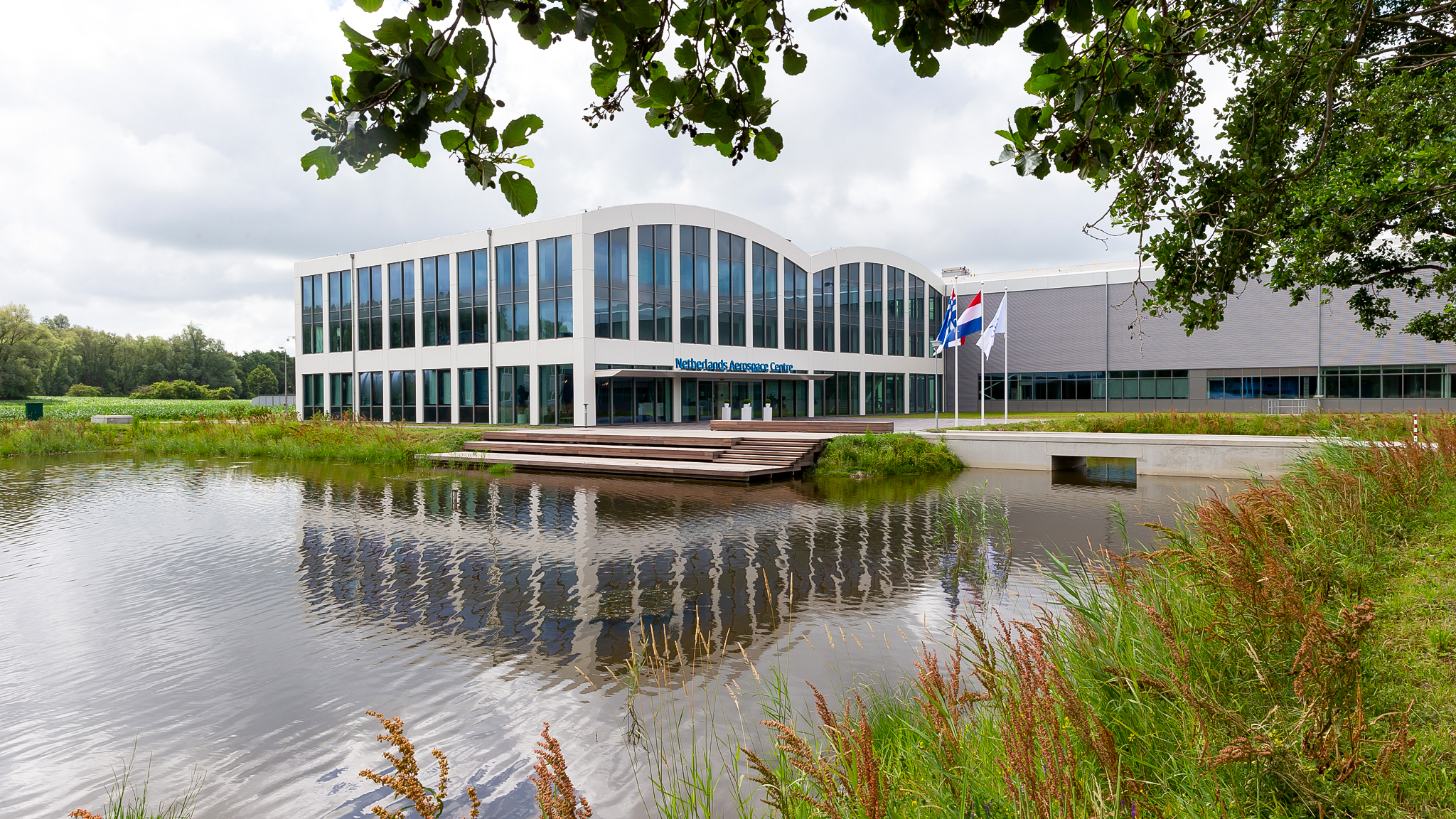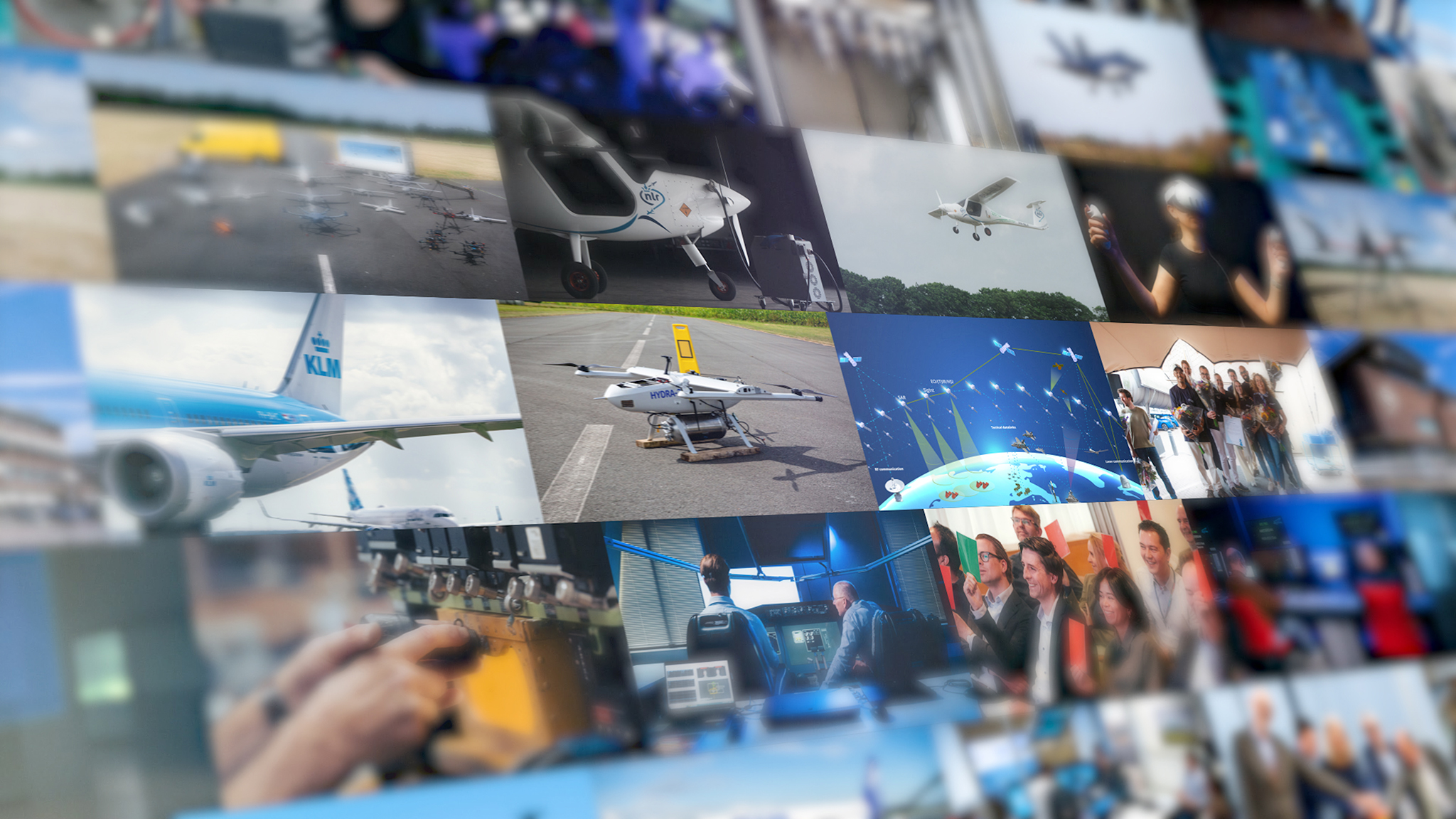Decades of fruitful and long-lasting cooperation between the German Aerospace Centre (DLR) and the Dutch Royal NLR – Netherlands Aerospace Centre (NLR) have driven initiatives forward that shaped European and global aviation, such as the joint German-Dutch Wind tunnels (DNW) and the creation of the European ATM Research Alliance AT-One. Our close cooperation, such as our jointly-run office in Brussels and other extensive bilateral initiatives, let us generate impact through synergy.

Based upon common elements in the new strategies of both organisations, we confirm that we are strengthening our cooperation by increasing its scope through new initiatives such as Unmanned Aerial Systems, Perfect Electrical Flight and Lifecycle Engineering and the Circular Economy, as expressed by signing the related Memoranda of Understanding (MoU) today. Furthermore, DLR and NLR are not only aiming to step up our game in digitalizing air transport and making aviation sustainable: a safe and secure society is a common and primary goal for which neither of us can afford to tackle in splendid isolation. As such, improving cooperation in the context of defence does not merely make sense, it becomes something we see as our shared responsibility.
Today’s urgent and complex challenges demand a coordinated effort; one that strengthens the role of research organisations in the European ecosystem and that pushes everyone to go further. It is our firm belief that this lasting partnership can be instrumental in achieving that.



